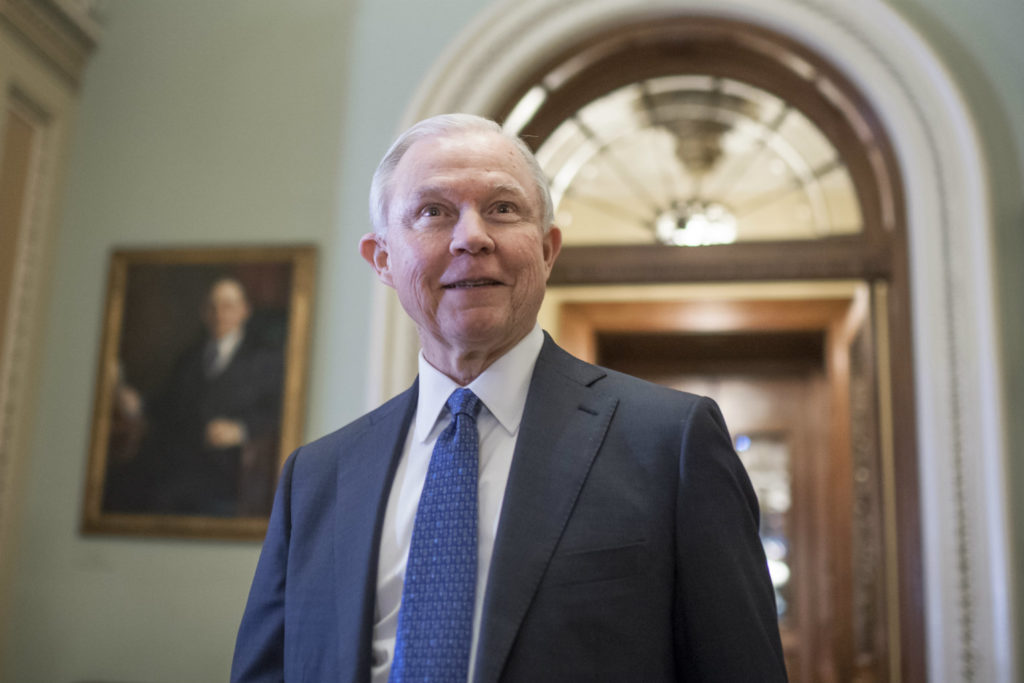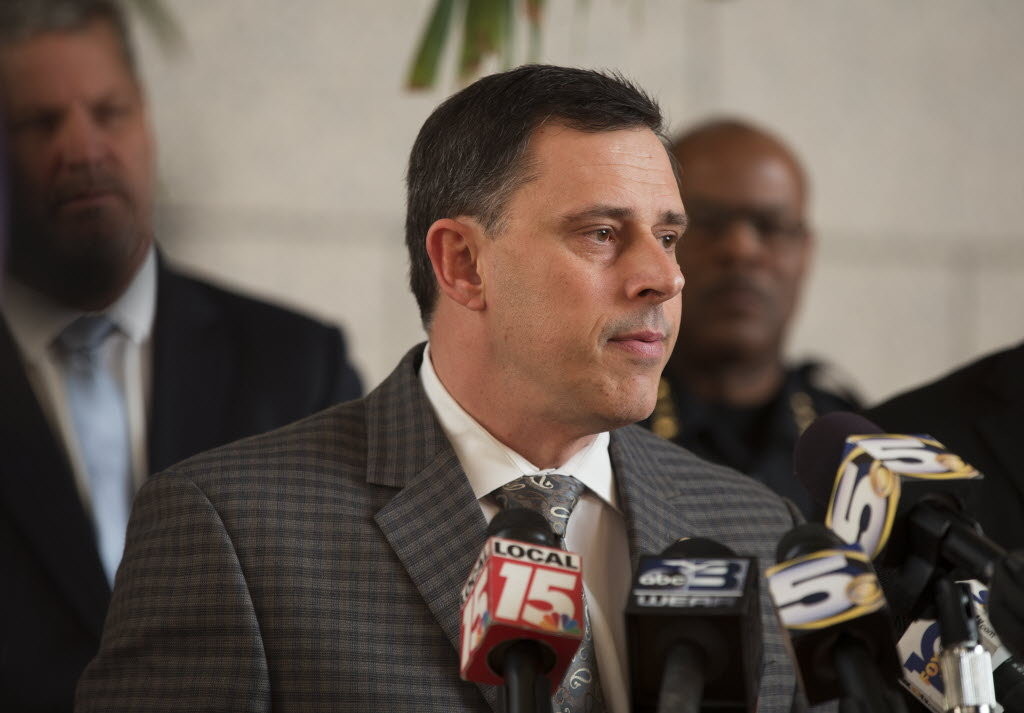Alabama Power fees on solar challenged

Jim Bankston installed solar panels on his Tuscaloosa home, he estimated it would trim his electricity bill, and the savings would eventually offset the cost of the hefty investment. After it was running, he noticed fees on his Alabama Power bill that he didn’t understand and learned there was a $5-per-kilowatt capacity charge on customers who use solar panels to produce a portion of their own electricity. “I am having to pay them just to use the photons that are hitting my own roof,” Bankston said. He had estimated the system would eventually pay for itself in 20 years. With the fees included, he said it could be twice that. “I won’t be alive anymore, maybe,” the 45-year-old radiologist says wryly, also noting that it also might be beyond the life span of the panels he installed. The Alabama Public Service Commission will hold a Nov. 21 hearing on a challenge to the fees charged by Alabama Power. The utility says the fees are needed to provide backup power for customers. But critics say the fees are some of the highest in the nation and make it harder for people to use alternative energy sources. “It’s discouraging the use of solar,” said Keith Johnston, managing attorney for the Southern Environmental Law Center’s Birmingham office. “We call it a solar tax.” The fee is based on the size of the solar system, so a five kilowatt system would have a monthly fee of $25. The average solar panel setup for a home costs about $10,000, according to the environmental law center. The fees add another $9,000 over the 30-year-lifespan of a system, dramatically increasing a homeowner’s cost and reducing any financial benefit they see from solar, the law group said. Johnston says they haven’t found a large investor-owned utility with fees as high as those being charged in Alabama. “It’s definitely one of the highest.” The petition asks the commission to bar Alabama Power from collecting the fee. Alabama Power is asking utility regulators to dismiss the complaint. They said the $5 fee is actually not enough and are asking to be allowed to increase the charge to $5.42 per kilowatt. Alabama Power said there is an important reason for the fees: The company has to maintain power grid infrastructure to provide backup power if the panels don’t provide enough energy. “There is a cost to having back-up power available to customers, including customers with solar systems who remain tied to the grid for backup service,” Alabama Power spokesman Michael Sznajderman said. He said the capacity reservation charge applies to anyone who has some type of onsite generation and still needs backup from the grid. People who go off grid “avoid any and all costs related to Alabama Power serving them,” he said. He said the company believes it has a compelling case in the upcoming hearing and is “focused on protecting all our customers and ensuring that those who use certain services pay for those services.” The issue of fees has arisen in New Mexico, Arizona and other states, causing clashes between renewable energy proponents and utilities. A power company in Iowa unsuccessfully pushed lawmakers to approve a fee that would require a homeowner with an average solar array to pay about $27 a month. “I think they are really intended to discourage customers from installing solar,” Gwen Farnsworth, a senior energy policy adviser with Western Resource Advocates, a Colorado-based conservation group. Farnsworth said the Alabama charge is “quite high.” Teresa Thorne, 65, had a four kilowatt system installed on her roof in Blount County, Alabama. She wanted to support solar and maybe in the process save a little money on her power bill. The $5-per-kilowatt capacity charge amounts to an extra $20 on her power bill. She said while that doesn’t sound like much, it slashes the savings she expected to see after investing thousands of dollars to install the system. “It cuts my savings in half,” Thorne said. Thorne said she tells people interested in solar for economic reasons that the fees make it not “economically feasible to do it in my opinion.” “I would not have done it if I’d known. That’s the bottom line. If I truly understood it was going to cost me half of the savings,” Thorne said. Republished with the permission of the Associated Press.
Jeff Sessions to announce Alabama Senate bid

Former Attorney General Jeff Sessions will announce that he is entering the race for his old U.S. Senate seat in Alabama, two Republicans with direct knowledge of his plans said Wednesday. Sessions, 72, will be making a return to the political stage a year after stepping down as President Donald Trump’s first attorney general when their relationship soured over his recusal from the Russia investigation. The two Republicans confirmed to The Associated Press that Sessions is expected to announce his candidacy Thursday. They were not authorized to discuss the matter publicly and spoke on condition of anonymity. They said Sessions has not spoken to Senate Majority Leader Mitch McConnell about it, nor has he informed Trump of his decision. The longtime senator’s candidacy upends the 2020 Republican primary, which has a crowded field competing to challenge Democratic Sen. Doug Jones for the once reliably red seat. Some GOP primary rivals wasted no time going on the offensive. Former Auburn University football coach Tommy Tuberville said Sessions has been “out of the swamp for less than two years, and now he’s itching to go back.” “He’s another career politician that the voters of Alabama will reject. As Attorney General, he failed the President at his point of greatest need,” Tuberville said in a statement. U.S. Rep. Bradley Byrne, the first Republican to announce a run for the Senate seat, played up his loyalty to Trump when asked about Sessions’ plans to enter the race. “Alabama deserves a Senator who will stand with the President and won’t run away and hide from the fight,” Byrne said in a Wednesday statement. Sessions was the first U.S. senator to endorse Trump’s 2016 campaign, and the two supported similar policies on immigration and law enforcement. But Sessions’ recusal from the Russia inquiry prompted blistering public criticism from Trump, who eventually asked him to resign. Despite enduring repeated public mocking, Sessions has remained a Trump loyalist who continues to back the president’s policies. In a speech last month at a Republican Party fundraiser in Huntsville, Sessions reiterated his support for the president even as he joked about life after being “fired” from a job. Sessions praised Trump’s effort on trade, immigration and foreign policy. “That’s why I supported him and why I still do support him,” Sessions told the crowd of about 500. “He is relentlessly and actually honoring the promises he made to the American people.” Sessions, for years a popular figure among state Republicans, represented Alabama in the U.S. Senate from 1997 to 2017. He will enter the race as a presumed front-runner, but the effect of Trump’s online and verbal lashings has yet to be seen in Alabama, where the president remains popular. In June, Trump called his selection of Sessions as attorney general his “biggest mistake.” “I would say if I had one do-over, it would be, I would not have appointed Jeff Sessions to be attorney general,” Trump said in an interview on NBC’s “Meet the Press.” One of the Republicans who spoke anonymously to the AP sees no indication that Trump has changed his feelings about Sessions and thinks he’ll eventually fall back because of the president’s attacks. But David Hughes, a political scientist at Auburn University at Montgomery, said there is no reason to think Sessions wouldn’t immediately be a front-runner. “He has a baked-in constituency. He has a huge donor network. … He’s got name recognition and the people of Alabama still largely like him,” Hughes said. In Alabama, midterm voters gave mixed assessments of their former senator. About as many said they had a favorable opinion of Sessions as unfavorable, 45 percent to 42 percent, according to AP VoteCast, a midterm survey of more than 750 voters in Alabama. Democratic voters were overwhelming negative, with 75 percent saying they view Sessions unfavorably. Even among Republican voters, about a quarter said they had a negative impressions; about two-thirds rated Sessions favorably. The Republican primary also includes Alabama Secretary of State John Merrill; former Alabama Chief Justice Roy Moore, who lost to Jones in a special election two years ago; state Rep. Arnold Mooney; and businessman Stanley Adair. By Brian Slodsko and Kim Chandler. Chandler reported from Montgomery, Ala. Associated Press writer Hannah Fingerhut contributed to this report from Washington. Republished with the permission of the Associated Press.
Alabama democrats push for party meeting on bylaws

Some Alabama Democrats are trying to call a state meeting amid a looming deadline from Democratic National Committee officials and an ongoing power struggle over the direction of the state party. U.S. Sen. Doug Jones is among those seeking an Oct. 5 meeting of the Alabama Democratic Party’s executive committee. Jones’ campaign started a “Fix the Party” website for committee members to review proposed new party bylaws and submit a meeting request. The Democratic National Committee in February ordered Alabama to update bylaws to provide representation of more minorities — not just African Americans — in the party and to hold new chair and vice-chair elections. A DNC panel this month gave the state party until Oct. 5 to approve the new bylaws, the latest in a series of deadlines given to the state party. Alabama Democratic Party Chair Nancy Worley scheduled an executive committee meeting for Oct. 12, a week after the deadline. She said the meeting was scheduled then so it wouldn’t interfere with October mayoral races. Executive committee members can call their own meeting if a majority of committee members agree. The Jones’ campaign said in an emailed statement that it created the “Fix The Party” website so members could easily access and view the new DNC-approved bylaws and the letters from DNC Chairman Tom Perez and the Rules and Bylaws Committee. “As of this afternoon we are confident that we will have enough support from SDEC members to call for the October 5th meeting,” the campaign statement read. Perez this month said the state party had “fallen far short of meeting its basic obligations” and national party officials have withheld funds because of the chronic problems. Worley, who was reelected as party chair last year, wrote in a text message that “malcontents” are pushing for the Oct. 5 meeting. She said the party leadership submitted several sets of bylaws, but said national officials seemed to always have a moving target. Worley said she believed the “real problem” is that some in the party remain unhappy with the result of last year’s leadership elections. Worley won reelection as party chair over a nominee backed by Jones. Birmingham Mayor Randall Woodfin on Friday said the party must “get it right.” “The Alabama Democratic Party must be a platform for progress for our state. As the mayor of the most progressive city in the state, we’re counting on the state party to get it right. If we’re going to have success in the future we just have a strong two-party state,” Woodfin wrote in an email. Republished with the permission of the Associated Press.
New marriage forms and process starts week

Alabama will require new forms— and a new process — for getting married beginning next week. The Alabama Department of Public Health issued guidance Tuesday about the new form and procedure. The Alabama Legislature this year voted to do away with marriage licenses to accommodate conservative probate judges who objected to same-sex marriage. Instead of a marriage license, couples will fill out a new form , have it notarized and then take it to the probate judge within 30 days. A wedding ceremony is no longer required, but a couple can still have one if they choose. The couple’s marriage date is the date that the affidavit on the Alabama Marriage Certificate form is signed by the two spouses, provided the notarized form is returned to the probate office within the required time frame. The change begins Friday, August, 29th. Ever since same-sex marriage became legal in Alabama, a few of the state’s 68 probate judges had refused to issue marriage licenses to anyone so they didn’t have to give them to gay couples. Alabama law says probate judges “may” issue marriage, but doesn’t force them to do so. Republican Sen. Greg Albritton proposed the change in state law. He said he believes it should accommodate probate judges’ concerns and allow people to get marriage documents everywhere. “There are many areas that are not conducting any marriages at all in the state. That puts a burden on those residents to travel somewhere else,” Albritton said. “I think it is going to allow all of Alabama to engage in matrimony. I think that is a very good thing,” Albritton said. Albritton pushed the change for several years before it was approved this legislative session. When the Alabama House of Representatives approved the change in May, Rep. Neil Rafferty, the only openly gay member of the House, said the change was “born out of prejudice.” “It accommodates a handful of judges that couldn’t get their personal feelings, couldn’t check those at the door and couldn’t do their jobs,” Rafferty, Democrat-Birmingham, told reporters in May. Republished with the permission of the Associated Press.
Former top cop files suit against Robert Bentley, Rebekah Mason

Alabama Gov. Robert Bentley‘s former law enforcement secretary sued his former boss Tuesday, claiming he was wrongly fired. Spencer Collier, who the day after his firing accused Bentley of having an affair with an adviser, says in the lawsuit filed in Montgomery that Bentley and the adviser, Rebekah Mason, made misleading statements to the media to try to discredit him. “Their lies have hurt me financially, have severely damaged my reputation and they have made it their mission to permanently end my career in law enforcement,” Collier said in a statement. Jennifer Ardis, a spokeswoman for Bentley, said the governor’s office had not seen the lawsuit and did not have an immediate comment. Bentley has previously said Collier was fired after an internal review found a misuse of funds at the state law enforcement agency. A text message to Mason and a call to Mason’s attorney were not immediately returned. The lawsuit is the latest twist in a sordid political tale that has engulfed the 73-year-old governor in controversy. It has been punctuated by back-and-forth salvos between Bentley and Collier, who were once close friends when they served together in the Alabama House. Collier’s lawsuit accuses the governor of firing him because the two disagreed over a request to file an affidavit saying investigators found no evidence of misconduct by prosecutors in the ethics case against House Speaker Mike Hubbard. Collier said he wanted to file the affidavit, but the governor didn’t want him to. He says Bentley asked him to lie to prosecutors and that he was unwilling to do that because it would be illegal. The governor is expected to be a prosecution witness at Hubbard’s ethics trial next month. Among the charges Hubbard faces is using his public office to benefit his clients by lobbying the governor’s office. “The governor did not tell anyone including Spencer Collier not to comply with the law – just the opposite. The governor wanted everyone treated correctly and in accordance with the proper law enforcement procedures,” the governor’s spokeswoman has said in a previous statement. A day after being fired, Collier accused Bentley of having an affair with Mason. The governor later admitted making inappropriate remarks to Mason, who has since resigned, but said he did not have a “physical affair.” However, racy recordings have surfaced of Bentley making sexually charged remarks, referencing kissing and touching, to someone with the same first name. The governor’s new law enforcement secretary, Stan Stabler, said last week that it was Collier who sent a state helicopter in 2014 to fly Bentley’s forgotten wallet from his hometown in Tuscaloosa to his beach house at Fort Morgan. Collier said he never approved the flight. Bentley said he did ask state security to retrieve his wallet, but he did not know they were going to use a helicopter to do it. Republished with permission of the Associated Press.


